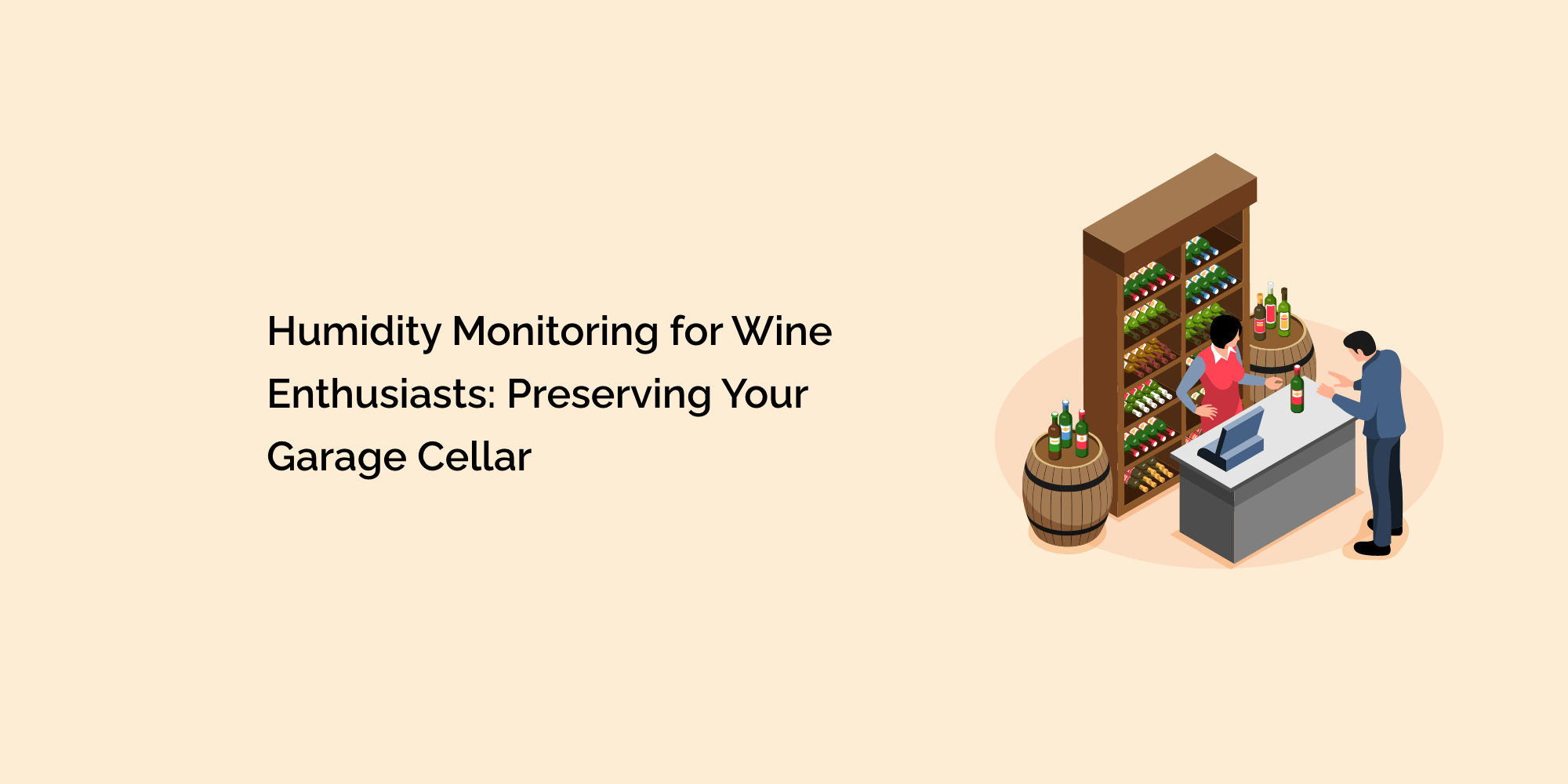For wine enthusiasts, creating a garage wine cellar is a popular way to store and age your favorite bottles of vino. However, maintaining the perfect environment for your wine collection can be a challenging task, particularly when it comes to managing humidity levels.
In this blog, we will explore the importance of humidity in wine storage and discuss the significance of humidity monitoring for your garage cellar. With the right tools and knowledge, you can ensure that your cherished wines age gracefully and maintain their quality over time.
The Role of Humidity in Wine Storage
Proper wine storage conditions are essential to preserve the flavors, aromas, and quality of your wine collection. Temperature and humidity are the two key factors that significantly impact wine aging. While temperature affects the speed of the aging process, humidity plays a crucial role in ensuring the integrity of the wine.
-
Cork Preservation: Most wine bottles are sealed with cork, which is a natural material that can dry out when exposed to low humidity. When the cork dries, it can shrink and allow air to seep into the bottle, leading to oxidation and spoilage of the wine.
-
Label Preservation: In addition to cork, the paper labels on wine bottles are also sensitive to humidity levels. High humidity can cause labels to peel or deteriorate, potentially decreasing the value of collectible wines.
-
Preventing Mold Growth: On the flip side, excessive humidity can promote mold growth on wine labels, corks, and wooden wine racks. Mold can negatively impact the presentation and quality of your wine collection.
-
Aromas and Flavors: Ideal humidity levels help maintain a tight seal on the cork, preventing outside odors from infiltrating the bottle. This ensures that your wine's aromas and flavors remain pristine.
Monitoring Humidity in Your Garage Wine Cellar
Now that we understand the importance of humidity in wine storage, let's delve into the significance of monitoring and controlling it in your garage wine cellar.
-
Invest in a Hygrometer: A hygrometer is a device that measures humidity levels. Place one in your garage cellar to regularly monitor the humidity. Digital hygrometers are accurate and easy to read.
-
Ideal Humidity Range: The ideal humidity level for wine storage falls between 50% and 70%. Maintaining this range ensures that corks stay properly sealed, labels remain intact, and your wine's quality is preserved.
-
Use Humidifiers or Dehumidifiers: Depending on your climate and the current humidity levels, you may need to use humidifiers or dehumidifiers to maintain the ideal range. These appliances can help create a stable environment for your wine.
-
Regular Inspections: Periodically inspect your wine bottles and the cellar environment for any signs of mold, cork drying, or label issues. Adjust the humidity control devices as needed.
-
Seal Any Leaks: Ensure your garage wine cellar is properly insulated and sealed to prevent outside air and humidity fluctuations from affecting the storage conditions.
Conclusion
As a wine enthusiast, maintaining the proper humidity levels in your garage wine cellar is crucial for preserving your valuable collection. By understanding the role of humidity in wine storage and investing in humidity monitoring tools, you can create the ideal environment for aging your wines gracefully.
Regularly check and adjust the humidity levels, and your garage cellar will continue to be the perfect place for your cherished wine collection to thrive and mature. Cheers to enjoying your well-preserved wines for years to come!








